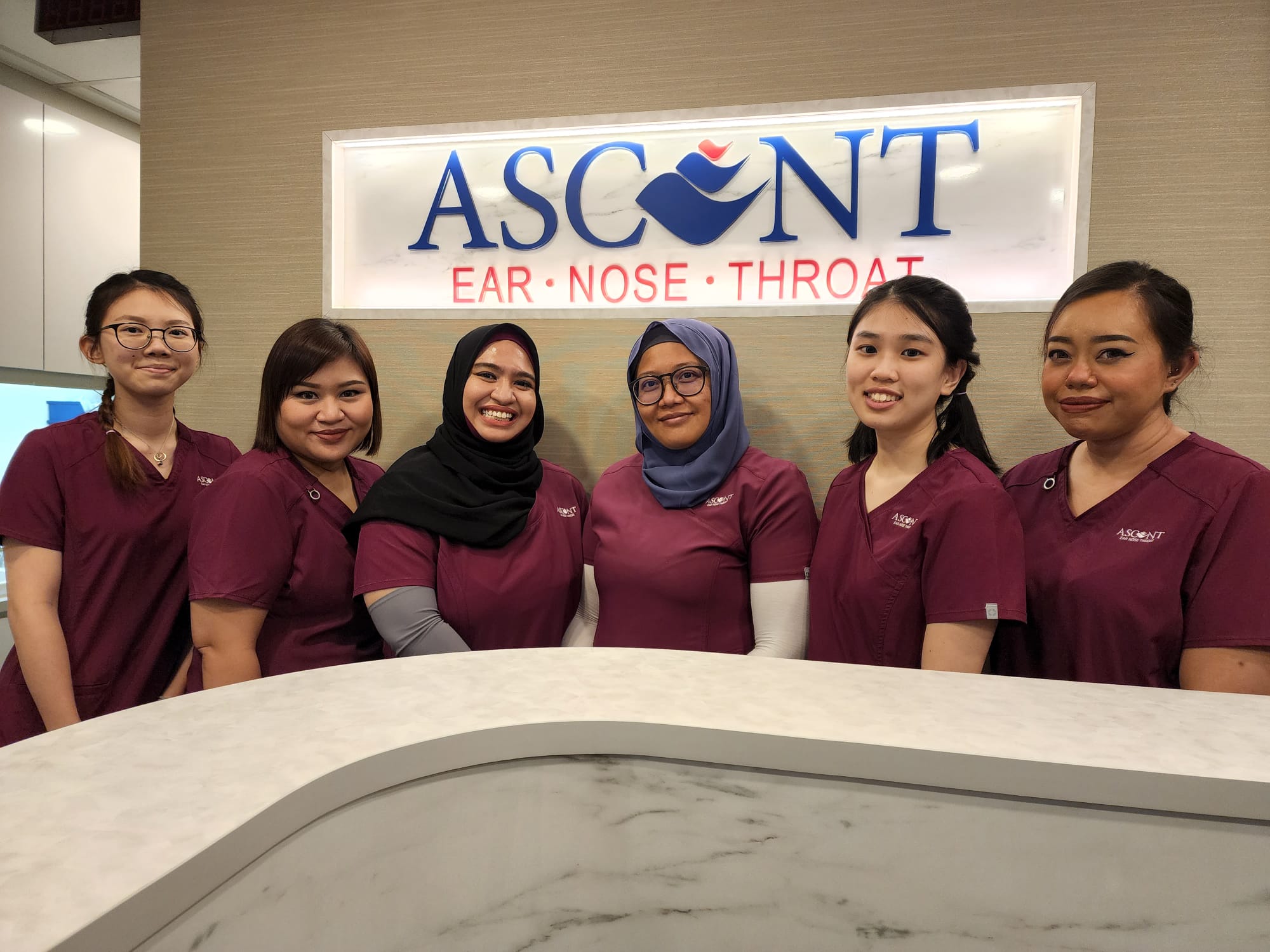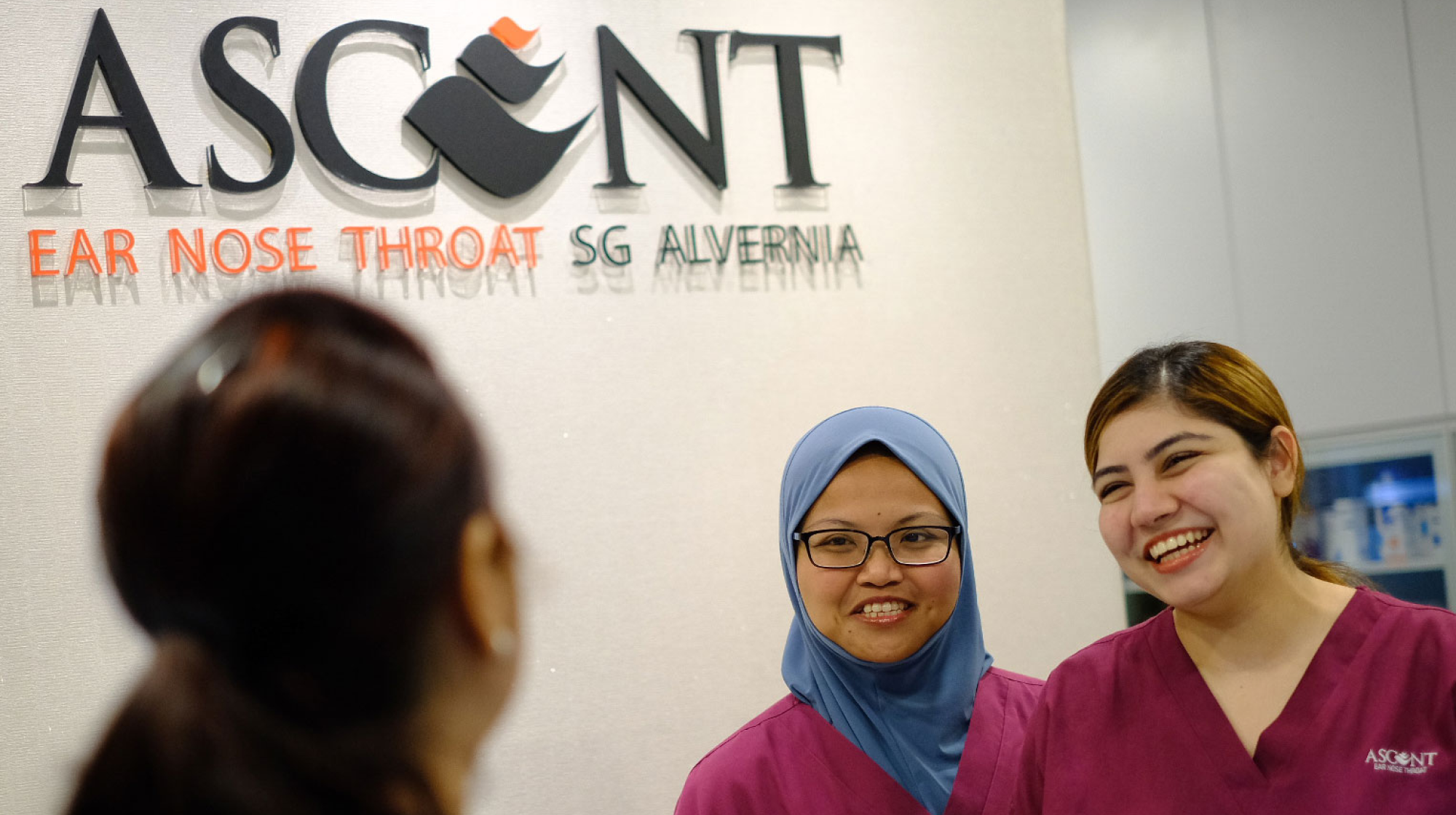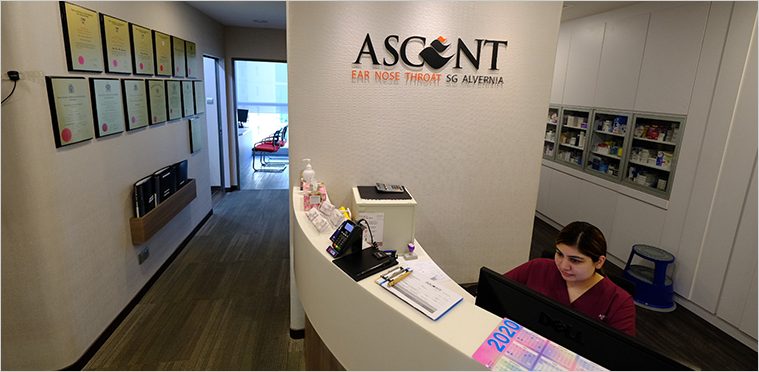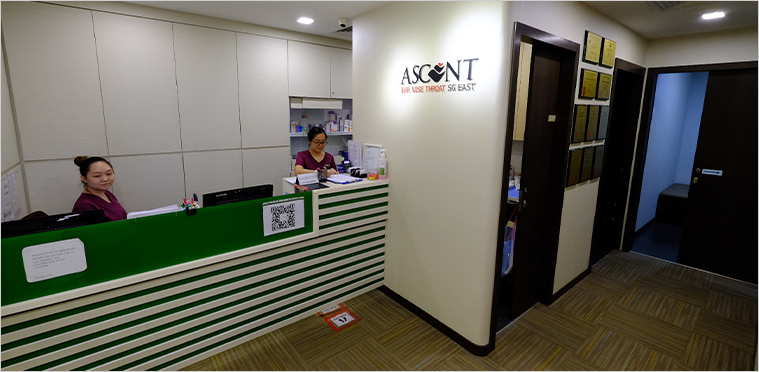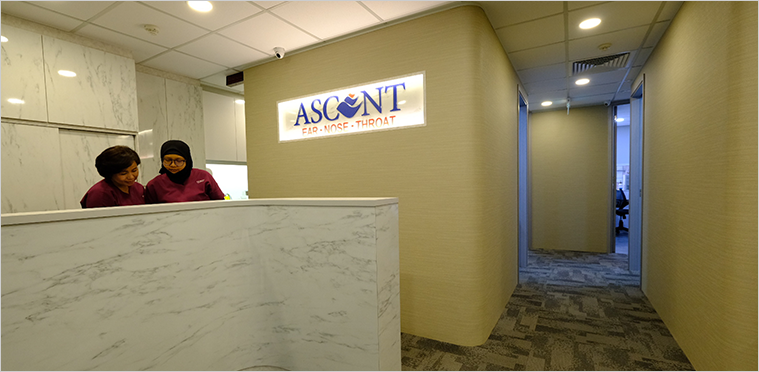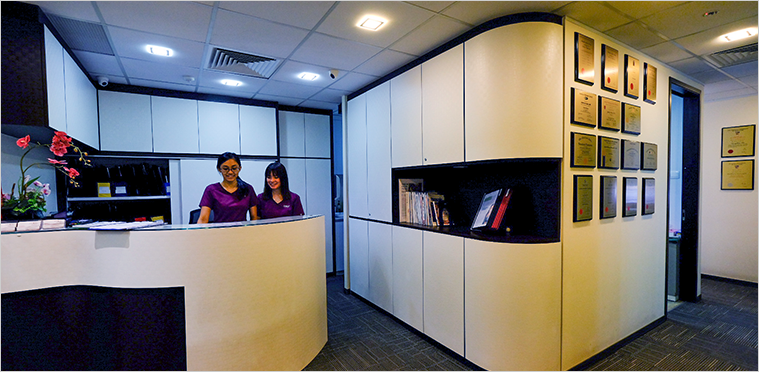What Causes Snoring & Obstructive Sleep Apnoea (OSA)?
-
Excessive bulkiness of throat tissues. The throat can be congested and narrowed if the tonsils become inflamed and enlarged or if there are structural abnormalities such as a long uvula or bulky tongue at the back of the throat. This congestion leads to snoring.
-
Excessive bulkiness of nose tissues. Snoring can also be caused by a blocked nose, resulting in breathing from the mouth. This may cause excessive breathing effort, which results in the collapse of soft tissues in the throat. A blocked nose may result from enlarged inferior turbinates, a deviated nasal septum or sinusitis.
-
Floppy soft tissues in the throat and weak tongue muscles. People with these conditions may result in their tongues falling backwards into the airway and their throat tissues at the side being drawn in during sleep, blocking the airway. This results in vibration of the tissues during breathing, leading to snoring.
-
Small or receding jaw. People with small or receding jaw bones are at an increased risk of snoring due to a smaller airway space behind their tongue.
What Are the Complications of Obstructive Sleep Apnoea (OSA)?


How Is Snoring & Obstructive Sleep Apnoea (OSA) Treated?
-
Weight reduction
-
Sleeping on the side
-
Continuous Positive Airway Pressure (CPAP) therapy, where a machine pumps air through a mask that the patients wear during sleep to keep the upper airway open
-
Customised oral devices and appliances to reposition the lower jaw and tongue during sleep
-
Surgical methods. The type of surgery performed depends on the level of blockage or narrowing in the upper airway. Some of the surgeries may include sinus surgery, adenoidectomy (removal of adenoid), tonsillectomy (removal of tonsils) or tongue base reduction surgery to remove the tissues at the back of the tongue to reduce tongue bulkiness and open the airway
How Is Obstructive Sleep Apnoea (OSA) Diagnosed?
The following examinations may be conducted to diagnose OSA:
-
Physical examination. The doctor may do a physical exam and inquire about your symptoms and medical history. They may also conduct flexible nasendoscopy (study of your throat and nose using a small lighted tube with a camera at the tip) to evaluate the potential sites of narrowing in the upper airway.
-
Polysomnography (PSG). Polysomnography is a lab sleep examination that measures oxygen levels and brain waves to determine the causes of sleep disruption.
-
Home sleep study (HST). This is a self-performed study that is used to diagnose sleep apnoea.
What Is Snoring & Obstructive Sleep Apnoea (OSA)
Snoring is the rattling or snorting noises a person makes during breathing while sleeping.
Obstructive sleep apnoea is associated with interruptions in breathing during sleep, causing the body to receive less oxygen and waking up frequently at night. Obstructive sleep apnoea is caused by an obstruction of the airways, leading to snoring, restlessness and gasping for air during sleep.
What Are the Symptoms of Obstructive Sleep Apnoea (OSA)
Our Specialists

Dr Chin Chao-Wu David
Senior Consultant Ear Nose Throat Surgeon
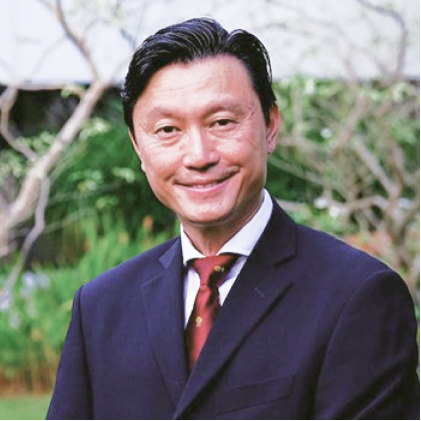
Dr Eng Soh Ping Elliot
Senior Consultant Ear Nose Throat Surgeon
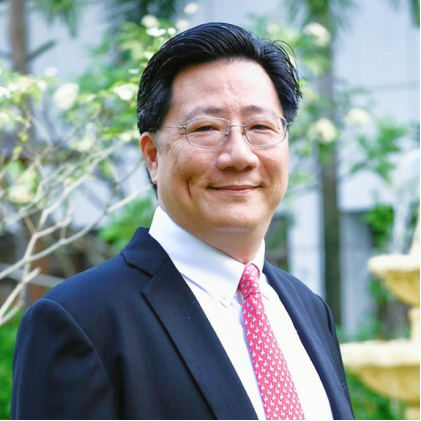
Dr Leong Jern-Lin
Senior Consultant Ear Nose Throat Surgeon
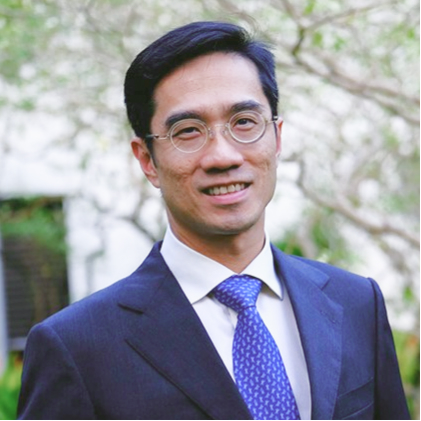
Dr Mark Hon Wah Ignatius
Senior Consultant Ear Nose Throat Surgeon
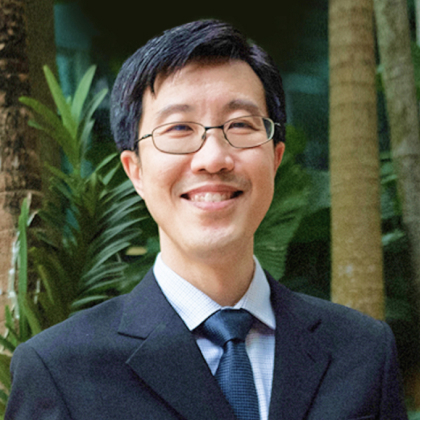
Dr Huang Xinyong
Senior Consultant Ear Nose Throat Surgeon
For Singaporeans & Singapore Permanent Residents
Insurance & Medisave Partners
Certain ENT procedures are claimable under Medisave, and the exact amount would depend on the procedure. For more information, please speak to our friendly clinic staff about using your insurance plan, Integrated Shield Plan, or Medisave.
When Should You See An ENT Specialist In Singapore??
-
Any Ear, Nose or Throat symptoms that you are troubled with or concerned of
-
Persistent blocked nose with mouth breathing or snoring
visit us today
Photo Gallery


Our Main Clinic
Feel free to drop by our clinic and meet our specialist
-
Mount Elizabeth Medical Centre 3 Mount Elizabeth #09-03, Singapore 228510
Other Practice Locations
Mount Elizabeth Medical Centre
-
3 Mount Elizabeth #09-05 Singapore 228510
Parkway East Medical Centre
-
319 Joo Chiat Place #03-02 Singapore 427989
Mount Alvernia Medical Centre D
-
820 Thomson Road #08-63 Singapore 574623
Gleneagles Medical Centre
-
6 Napier Road #03-12 Singapore 258499
Frequently Asked Questions
Is Snoring & Obstructive Sleep Apnoea (OSA) serious? When should I visit a doctor?
Snoring is typically not a sign of anything serious. Furthermore, not everyone who snores has obstructive sleep apnea.
However, you should seek immediate medical attention if your symptoms persist for a prolonged period and if they impede your daily functioning to a great extent. Alternatively, if you have any queries or concerns related to snoring or OSA or if you are unsure if you have one, you should see a doctor as soon as possible as early intervention and diagnosis can increase the treatment success rate.
What increases the risks of Obstructive Sleep Apnoea (OSA)?
- Obesity or excess weight
- Family history of obstructive sleep apnoea
- Older age
- Excessive smoking
- Naturally narrow airways
- High blood pressure
- Diabetes
- Asthma
How to prevent Snoring & Obstructive Sleep Apnoea (OSA)?
- Exercise regularly and maintain a healthy weight
- Avoid sleeping on your back
- Have adequate sleep
- Avoid excessive alcohol consumption
- Drink plenty of water


